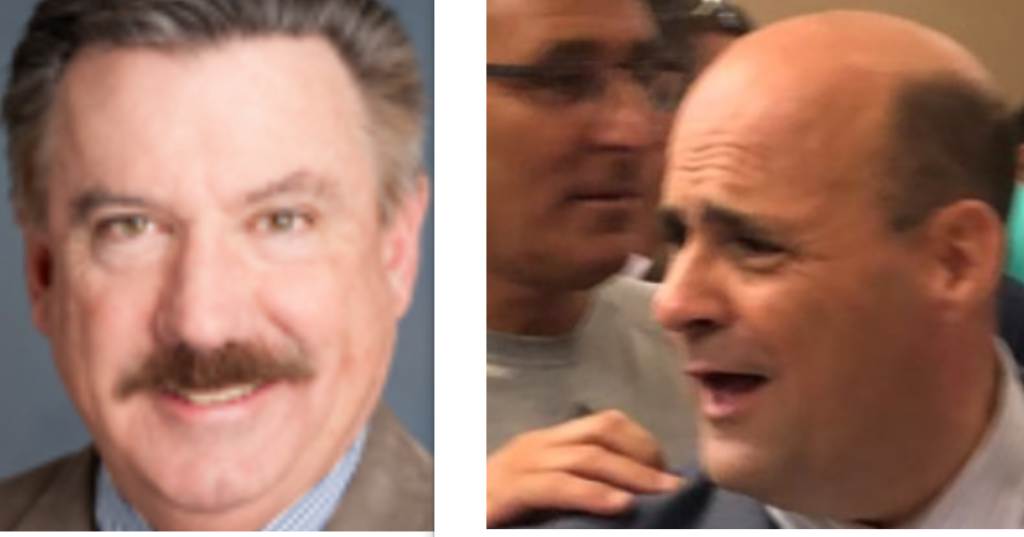Fixing the ‘Broken Windows’ of Political Parties Could Ease Today’s Political Divide

Stronger political parties may calm the turbulence engulfing politics and government today.
The uncertainty and distrust on both sides surrounding the recent presidential election has made even rockier the road politics and government has taken in recent years.
This recent and deepening wave of cynicism should be of grave concern no matter the side.
There is always going to be some level of political tension between presidents and Congress, governors and state legislatures, or within legislative bodies.
When polarization runs so deep that it undermines trust in elections, it takes on a whole new -and worrisome- dimension.
How can the nation escape this civic morass?
In policing, there is the broken windows theory first described in 1982 by social scientists James Wilson and George Kelling. Supported by some, disparaged by others, the theory holds that if a window in a building remains broken and is not repaired, more damage will follow.
“One unrepaired broken window is a signal that no one cares, and so breaking more windows costs nothing,’’ the scientists wrote in The Atlantic. Conversely, if a window is repaired, it will impede further damage to the building and even lead to improving its overall quality.
Applying the same theory to politics, leaving parties broken may lead to further damage to the political climate. Fixing parties could improve it.
According to Pew Research in 1960 over 70 percent of the people identified with one party or the other. Likewise, a similar percentage indicated that they trusted government.
By 2015, however, Pew Research found that party identification had declined to 52 percent while trust in government decreased to about 20 percent of the population.
Stronger parties may give a boost to politics and government by reversing the downward trends in party identification and trust.
Not that it is an easy fix.
Unquestionably, skepticism toward political parties has been part of the nation’s political culture from the beginning of the republic.
Factionalism between Alexander Hamilton and Thomas Jefferson within the Washington administration prompted the nation’s first president to warn against parties in his farewell address to the nation.
To many, political parties are bastions of corruption headed by party bosses whose selfish interests lead them to dole out patronage, public contracts, and no-show jobs in return for the loyal support from those who benefitted from the largess of the party.
Tammany Hall, “Boardwalk Empire” and other historic examples may make this seem like the norm. Fortunately, the vast majority of party officials are dedicated people who are NOT corrupt. Parties functioning properly truly benefit society.
Noting that political parties are central to our electoral and governmental systems, Professor Marjorie Random Hershey writes in “Party Politics in America” . . . Both major American parties can trace their histories more than 150 years . . . The parties are there as points of reference year after year, election after election, and candidate after candidate, giving continually to the choices Americans face and the issues they debate.”
Most importantly, in terms of the current polarization that plagues our politics, a stronger party system can help to soften the divisions that exist today. By virtue of party discipline, they can organize majorities in government that are crucial to governing.
In addition to providing a training ground for leadership, these historical institutions help to build relationships, even across party lines, so critical for bringing people together for the common good.
By encouraging leaders to work together, parties can create an environment that promotes compromise and encourages the establishment of majorities.
Disciplined parties that serve to ease the passage of legislation and work to bring about agreed upon public policies will go far toward ameliorating the fragmentation and polarization that marks our politics today.
In doing so, political parties, which Hershey has said are at the “core of American democracy,” could assume the role of the repaired window that rebuilds trust in the very foundation of our government.
In the spirit of strengthening political parties in New Jersey, the Election Law Enforcement Commission has made several proposals.
They are: remove parties from pay-to-play restrictions; include special interest PACs under pay-to-play law; disclose contributions and expenditures by independent groups making both express advocacy and electioneering communications; allow parties to participate in gubernatorial elections; and increase contribution limits applicable to parties.
Hopefully, the Legislature will consider these proposals and fortify the party system in New Jersey.
Jeff Brindle is the Executive Director of the New Jersey Election Law Enforcement Commission.
The opinions presented here are his own and not necessarily those of the Commission.










Leave a Reply